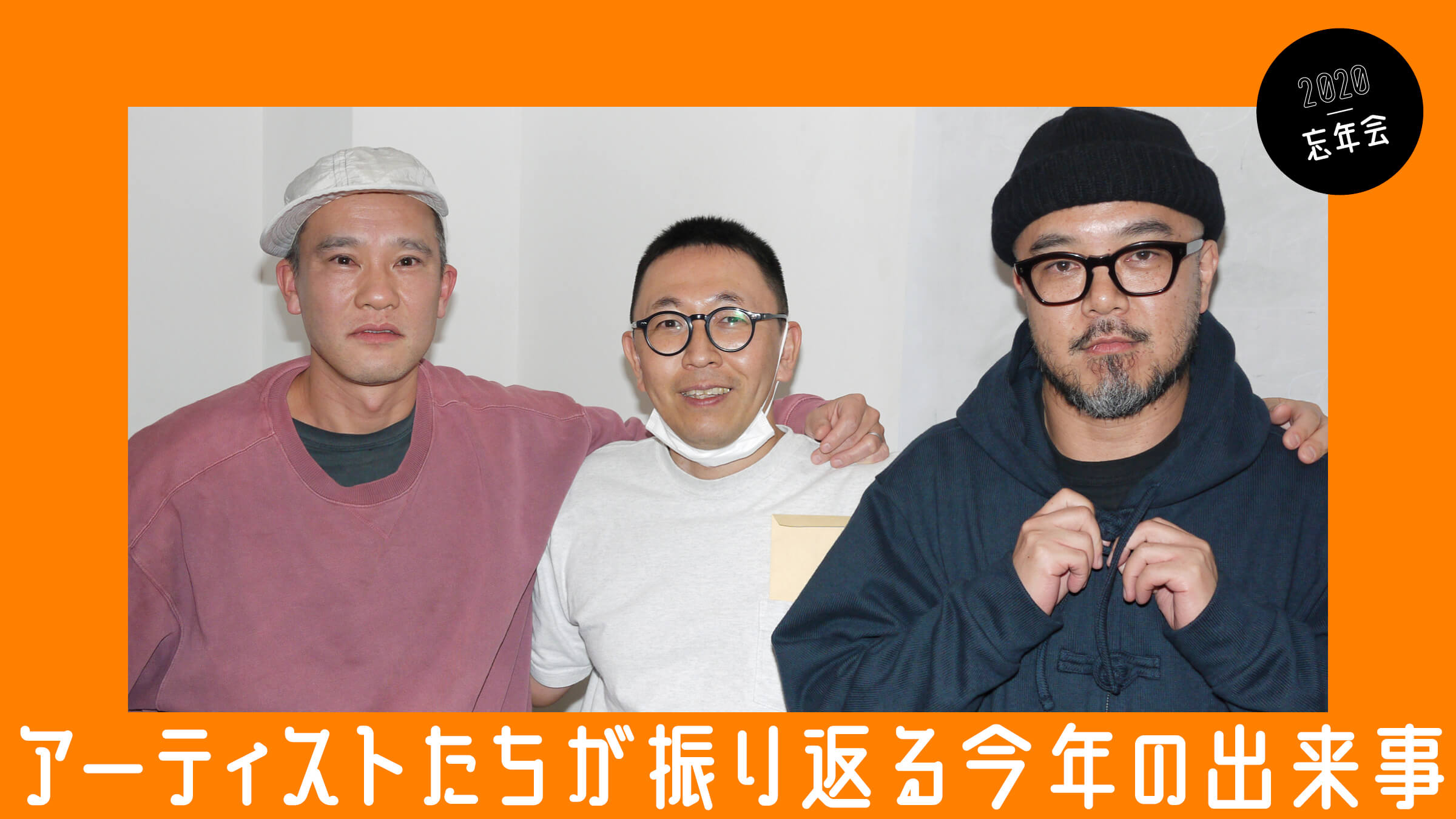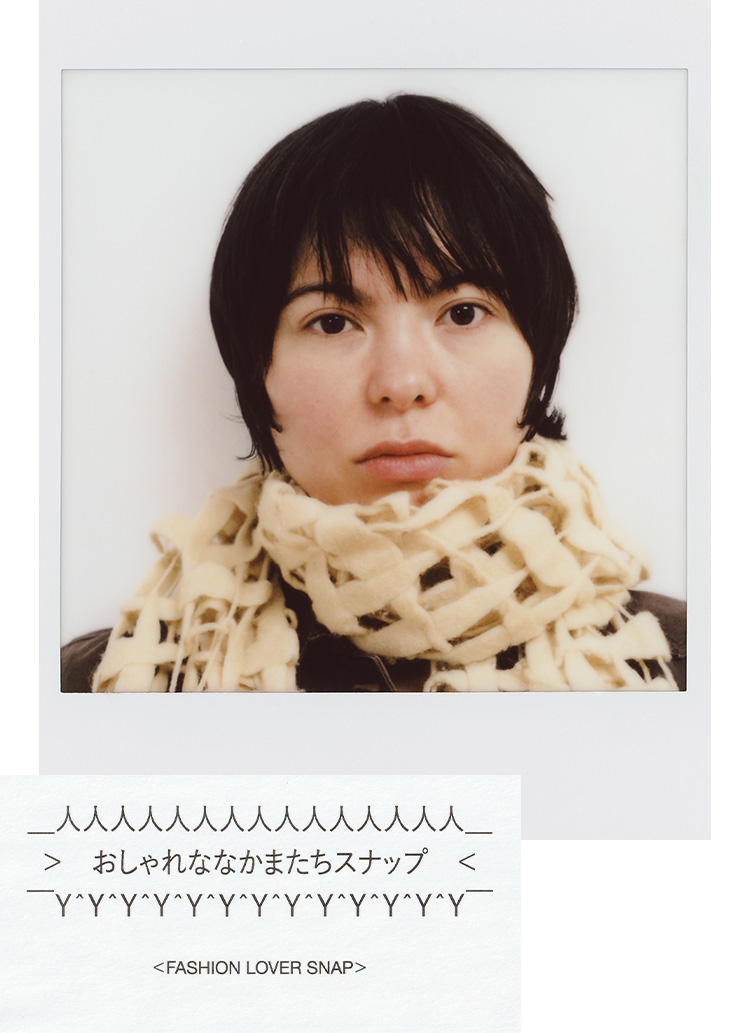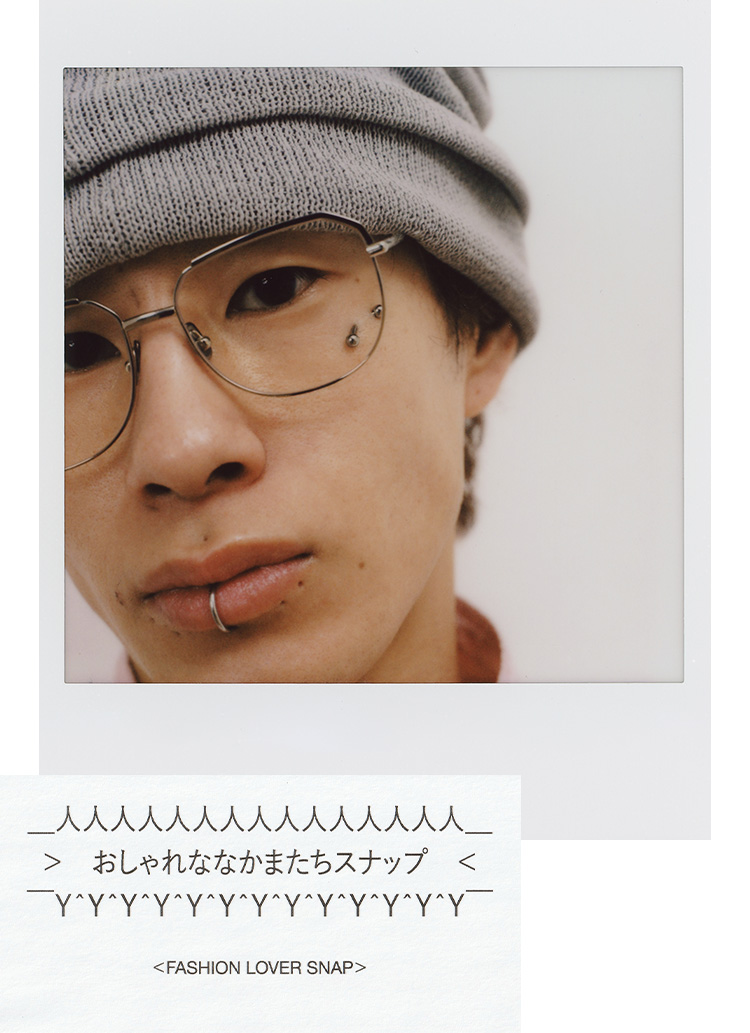What is called "mainstream" is disappearing rapidly. (Nakamura)
In the DJ and other event scene, there seems to be an increase in outdoor parties with limited numbers of people, without too much publicity. Take all possible measures against coronavirus, such as temperature checks.
Subject Office: It means you are diving more underground.
Nakamura: So we're back to the party scene of old.
Subject Office: It's interesting that you don't post them on social networking sites or in the media. If people around you are too picky, you just don't post it.

Kagami: That would make Instagram and Twitter fade away.
Nakamura: It would be interesting if that happened.
Kagami: We are going back to a time when there was no such thing, right? Then, everyone will be thinking about how to spread information.
Nakamura: It would be interesting to do it just by word of mouth, like the raves of long ago. Like, "I hear it's happening around here in the mountains! I hear it's happening around here in the mountains. Even so, people who like raves will go looking for them.
Kagami: If no one comes, that would be interesting (laughs). Wouldn't it be kind of cool to perform by yourself without any announcement and without anyone coming?
All: LOL!
Kagami: I think we will see a further subdivision of the market in the future. Up until now, large festivals have been popular, but smaller ones may increase rapidly.
Nakamura: It would be interesting if that happened.
Kagami: And if you're interested, you'll have to go and check them all out.
Subject Office: And young kids are very good at searching. Some of them have information that makes you say, "How did you get that information? There are kids who have information that you would ask, "How did you get that information? The routes for obtaining information are completely different.
I think there is a community, and the interactions within that community are active and intense.
Nakamura: It's like you only do things with people you can share them with. That's how parties used to be. There was no need to create a buzz because there was no intention of inviting more people than necessary.
Subject Office: It will be interesting to see if the buzz is lame.
Kagami: So you're saying that in this age of easy access to information, you don't let people get it easily.

Subject Office: In the contemporary art world, there are an increasing number of "artist-run spaces" run by young artists themselves. The kids there all seem to be having a lot of fun. When I asked them about their visions for the future, they replied, "I hope to do something together with artists I really like and people I think are cool," and that was the end of the conversation. We don't have any ambitions to make it into a big gallery.
Kagami: You are not greedy in a good way.
Subject Office: It would be interesting to see if the art scene becomes even more bifurcated and takes on a different form.
Nakamura: That sounds like an interesting trend. It is as if what is called "mainstream" is rapidly disappearing.
Do you mean that there will be more pure expressions?
Nakamura: I think that's what it's all about.
Kagami: It's the exact opposite of what it is now. I think that is a very good trend.
I feel that such a dichotomization is also taking place in the fashion industry. Many stores and brands have been hit hard by the coronavirus.
Kagami: Rei Kawakubo was on TV the other day. I thought to myself, "This is an age when people have to be in the media, even though they have never been in the media before.
In that program, you said, "It is precisely in times like these that we must move forward with something new.
Kagami: It means that you are both a designer and a business owner. You have stores all over the world, and you have a lot of employees. When I saw that, I was really shocked. So many things have changed in the past year.










